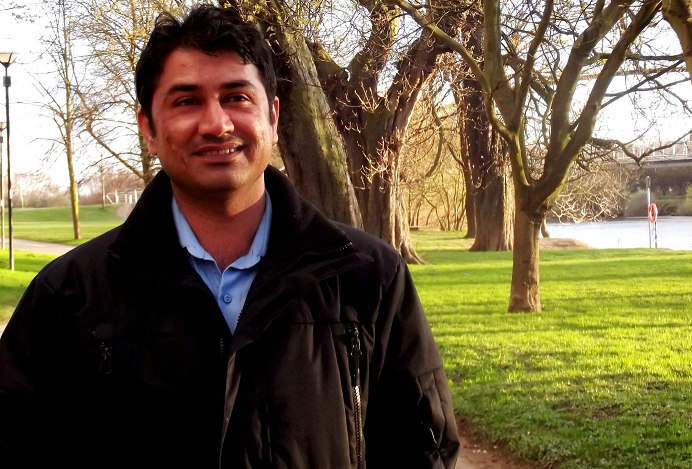By: Kazim Lakyaree
[The writer is a development professionalist. He has done MSc in HR from Sheffield Business School, UK. He is also recipient of President’s Gold Medal by the President of Pakistan.]
You might have come across to a friend or a family member who had recently recovered from COVID-19, though his symptoms were very mild but after recovering from COVID-19, he started acting quite differently. You might have observed one of your colleagues returning to office after COVID-19, being slow in his activities or even not being able to write simple reports. You might have also come across your spouse, who remains quiet for several days or spends most of the time sleeping, after recovering from covid-19. Or you might have observed a closed one taking wrong words for things or even mixing names of the people. I am one of them, when I got infected with COVID-19, my symptoms were very mild, it was mostly loss of test and little weakness in the beginning. In the same time my father who was in his 80’s, had also tested positive for COVID-19, though his test came negative after 15 days but he could not sustain the damage caused by the virus and left for heaven after a month. I was very close to my father and during his last days at hospital I was running up and down from one city to other from one hospital to other, trying everything in my capacity to save my father’s life. I didn’t take care of my health, I had recently recovered from COVID-19 and required rest, however my father’s condition did not allow me to stay back at home.
In the grief of my father’s loss, I forgot my own medical condition and continued ignoring the weakness and depression for a month. It was not after 5 weeks of recovering from COVID-19 that I got my Liver Function Test done and I realized that there was some swelling on my liver, I considered this as a reason for my weakness and started medication. Though the weakness decreased but my mental health issues didn’t seem to wash out. I was continuously taking wrong words for things, calling people with wrong names and struggled with simple daily tasks. I was even unable to communicate properly. I wasn’t using right words to express myself. I was feeling very low in confidence and had left little courage to deal with daily life. I was even unable to understand social cues.
As normally I am quite outspoken so other people around me didn’t notice much. My anxiety and depression started increasing with time. After two months of recovery, I started spending most of my time sleeping, remained quiet most of the time and limited my social life, I was kind of imposing self-isolation on myself. My life limited from office to my home. This further deteriorated my condition. I was unable to perform any task that required mental input such as any written work or even planning anything. During all this time, I thought it’s my father’s grief that is Killing me. This continued for more than five months and I started to get worried. I started googling “how to cop up with grief and depression” and I came across a medical research, suggesting that my condition was due to post Covid-19 syndrome.
Normally when we hear COVID-19, the first thing that comes in our mind is that it effects respiratory system. Though in many of the cases the COVID-19 virus effects respiratory system only, whoever new research suggests that as many as 30% of the people, regardless of sever or mild COVID-19 symptoms can develop issues related to mental health, which may continue for weeks or even months and in some cases, they can affect people’s life for 12 months.
Among other conditions, Brain Fog is the most common. Brain fog is a generic term, its not a medical condition in itself, its combination of different medical conditions such as Lack of clarity, being unable to focus, memory problems, poor concentration, anxiety and depression. Though there is no clear evidence to suggest exact reason for brain fog after COVID-19 but some medical precisionists suggest, it is due to inflammation caused by the virus.
Among other medical conditions fatigue and brain fog are most common conditions that people face after COVID-19. Dr. Joan Bosco, a medical practitioner at Mount Sinai, Hospital, New York shares that “They had issues like fatigue, brain fog, chest pain, shortness of breath, racing heart, GI symptoms, and anxiety and depression,” she further explained “It was surprising, because some of the least sick patients initially wound up being the sickest down the road.”
Most of the people in developing countries are not aware of mental health problems and those who are aware are reluctant to seek any help. It is important to understand the mental health issues and seek help at earliest. I believe that I would have recovered from post COVID-19 syndrome earlier, had I known about it at initial stage.
If you find some one in your circle who is acting bit weariedly after COVID-19 then please help him/her before the condition tightens its roots. Believe me Post COVID-19 Syndrome is real and it has nothing much to do with fear of COVID-19

